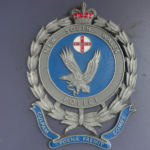The Law on Refusing a Breath Test or Analysis in NSW

Many jurisdictions, including NSW, have laws which make it a crime for drivers to refuse a breath test by police. The state of Kansas in the USA had similar laws in place – until recently.
Last month, the Supreme Court ruled that Kansans who refuse a breath or blood test cannot be prosecuted.
The Court concluded that such laws are unconstitutional – unless police obtain a warrant or if one of the limited exceptions to requiring a warrant apply.
The Case of David Lee Ryce
It all started when a Sheriff’s Deputy saw David Lee Ryce reversing down a street, disappeared from view, then reappeared in a nearby parking lot.
The Deputy pulled Mr Ryce over and observed that his breath smelt like alcohol, that he had bloodshot and watery eyes, and that his speech was slurred. Mr Ryce said he had “a few drinks”, but failed the roadside sobriety test.
He was then arrested and taken back to the police station, where police directed him to undergo a breath test. They warned that failure to comply is a criminal offence, but Ryce refused regardless.
Police then charged him with failing to undergo a breath test. But Mr Ryce fought the charge, and the District Court ruled in his favour – finding that criminalising such a refusal is unconstitutional.
The State appealed to the US Supreme Court, arguing that Kansas law deemed anyone operating a motor vehicle to have consented to the testing of “blood, breath, urine or other bodily substance to determine the presence of alcohol or drugs.”
In the Supreme Court
The Supreme Court examined the Fourth Amendment of the Constitution, which states:
“The right of the people to be secure in their persons, houses, papers, and effects, against unreasonable searches and seizures, shall not be violated, and no Warrants shall issue, but upon probable cause.”
The Court found a breath test to be a type of a search, and that the legislation “does not mean Ryce, by taking the wheel of a vehicle after drinking, lose[s] his reasonable expectation of privacy in his bodily integrity.”
It found that for a search to take place without a warrant (or any of the limited exceptions), it must be freely and voluntarily consented to – not under coercion.
It said that Kansas legislation contradicts this rule because it “punishes an individual for withdrawing his or her consent to a search even though the right to withdraw consent is a corollary to the constitutional right that consent be free and voluntary.”
The Court concluded that any implied consent to a breath test can be withdrawn anytime, stating: “if the individual expressly refuses to submit to testing, the refusal equates to a withdrawal of complied consent.”
What About NSW?
Unsurprisingly, refusing to submit to a roadside breath test or a breath analysis at the police station or in a booze bus is a criminal offence in NSW, and we have no constitutional right against this.
Although the reading from a roadside breath test is not admissible in court, a positive indication is enough for police to arrest a person for the purposes of a breath analysis, and the reading from the breath analysis machine is indeed admissible in court.
Refusing a roadside breath test comes with a maximum fine of $1,100.
Refusing a breath analysis is more serious – for a first major traffic offence within five years, section 16 (1) (b), Schedule 3 of the Road Transport Act NSW prescribes a maximum penalty of:
- 18 months imprisonment,
- Three years ‘automatic’ disqualification from driving, which can be reduced to a ‘minimum period’ of 12 months, and
- A $3,300 fine.
These are the same as drink driving penalties.
So while it may be legal to refuse a breath test in Kansas, your best option is to comply with the test in NSW.
Going to court for a traffic offence?
If you are going to court for a traffic offence, call or email Sydney Criminal Lawyers anytime to arrange a free first consultation with an experienced, specialist traffic lawyer who will accurately advise you of your options, the best way forward, and fight for the optimal outcome in your specific situation.






